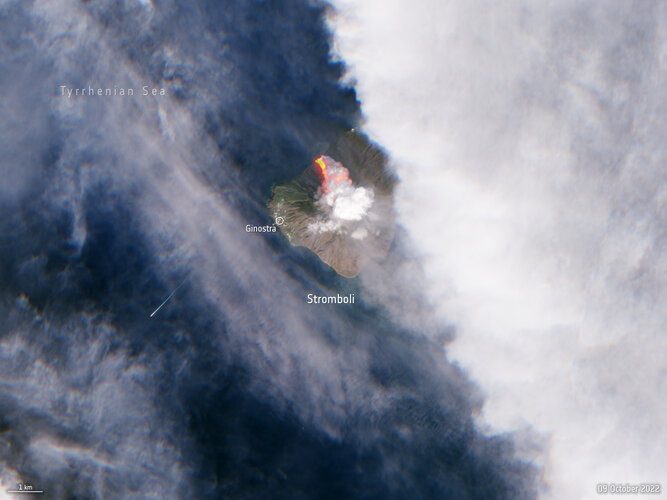A volcano on the Italian island of Stromboli erupted early on Sunday morning, releasing huge plumes of smoke and a lava flow pouring into the sea. The Copernicus Sentinel-2 mission captured this image of the aftermath less than five hours after the eruption.
The eruption caused the partial collapse of the crater terrace which was followed by major flows of lava stretching to the sea and enormous plumes of smoke rising several hundred metres above the volcano. Italian civil protection authorities raised the alert from yellow to orange as the ‘situation of enhanced volcano imbalance persists.’
This Sentinel-2 image has been processed in true colour, using the shortwave infrared channel to highlight the new flow of lava. Sentinel-2 is based on a constellation of two identical satellites, each carrying an innovative wide swath high-resolution multispectral imager with 13 spectral bands for monitoring changes in Earth’s land and vegetation.
The northernmost island of the Aeolian archipelago, located just off the northern tip of Sicily, Stromboli’s volcano has been erupting almost continuously for the past 90 years.



 Image:
A volcano on the Italian island of Stromboli erupted early on Sunday morning, releasing huge plumes of smoke and a lava flow pouring into the sea. The Copernicus Sentinel-2 mission captured this image of the aftermath less than five hours after the eruption.
Image:
A volcano on the Italian island of Stromboli erupted early on Sunday morning, releasing huge plumes of smoke and a lava flow pouring into the sea. The Copernicus Sentinel-2 mission captured this image of the aftermath less than five hours after the eruption.